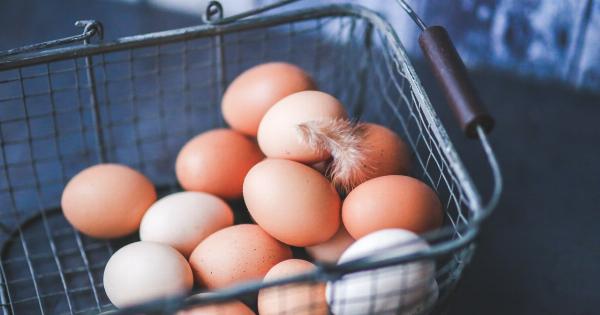Cholesterol is a type of fat that is essential for normal body function. It plays a vital role in the production of hormones, vitamin D, and substances that help with digestion.
However, having high levels of cholesterol in the blood can increase the risk of heart disease and stroke. It is therefore important to maintain healthy cholesterol levels by following a balanced diet and incorporating cholesterol-fighting foods into your meals.
What is High Cholesterol?
High cholesterol, also known as hypercholesterolemia, occurs when there is an excessive amount of cholesterol in the blood.
Cholesterol is carried through the bloodstream by lipoproteins, specifically low-density lipoprotein (LDL) and high-density lipoprotein (HDL). LDL cholesterol is often referred to as “bad cholesterol” as it can build up in the arteries, leading to the formation of plaque and increasing the risk of heart disease.
On the other hand, HDL cholesterol is considered “good cholesterol” as it helps remove LDL cholesterol from the arteries.
The Role of Diet in Cholesterol Management
Diet plays a crucial role in managing cholesterol levels.
Consuming a diet that is high in saturated and trans fats can raise LDL cholesterol levels in the blood, while consuming foods rich in dietary fiber, antioxidants, and healthy fats can help maintain healthy cholesterol levels or even lower them.
The Surprising Superfood: Oats
Oats are a true superfood when it comes to fighting cholesterol. They are naturally rich in soluble fiber called beta-glucan, which has been shown to reduce LDL cholesterol levels.
The Mechanism Behind Oats’ Cholesterol-lowering Power
When consumed, the beta-glucan from oats forms a gel-like substance in the intestines. This gel binds to cholesterol in the gut and prevents its absorption into the bloodstream.
As a result, the overall cholesterol levels in the body decrease, leading to improved heart health.
Scientific Studies Supporting Oats’ Cholesterol-lowering Effects
Several scientific studies have demonstrated the cholesterol-lowering effects of oats. A study published in the American Journal of Clinical Nutrition showed that consuming oats regularly can reduce total cholesterol levels by 2-3%.
Another study published in the Journal of the American Medical Association found that incorporating oats into the diet can lower LDL cholesterol levels by 5-10%. These effects are particularly beneficial for individuals with high cholesterol levels or those at risk of developing heart disease.
Incorporating Oats into Your Diet
There are multiple ways to incorporate oats into your diet to enjoy their cholesterol-lowering benefits. One simple method is to start your day with a nutritious bowl of oatmeal.
You can top it with fresh fruits, nuts, or seeds for added flavor and health benefits. Oats can also be used in baking recipes, such as oat cookies or bread, providing a healthier alternative to traditional treats.
Other Cholesterol-fighting Foods
In addition to oats, there are several other foods that can help fight cholesterol:.
1. Nuts and Seeds
Nuts, such as almonds, walnuts, and pistachios, as well as seeds like chia and flaxseeds, are rich in healthy fats, fiber, and plant sterols. These components can help lower LDL cholesterol levels and improve overall heart health.
2. Fatty Fish
Fatty fish, such as salmon, mackerel, and sardines, are excellent sources of omega-3 fatty acids. Omega-3 fatty acids are known to reduce inflammation, lower triglyceride levels, and increase HDL cholesterol levels, thus promoting heart health.
3. Olive Oil
Olive oil is a staple of the Mediterranean diet, which is renowned for its heart-healthy benefits. It contains monounsaturated fats, which can help lower LDL cholesterol levels when used in moderation.
4. Avocados
Avocados are packed with monounsaturated fats, fiber, and plant sterols, making them an excellent choice for cholesterol management. They can help increase HDL cholesterol levels while simultaneously reducing LDL cholesterol.
5. Legumes
Legumes, including beans, lentils, and chickpeas, are rich in soluble fiber and plant-based proteins. Regular consumption of legumes has been associated with improved cholesterol levels and decreased risk of heart disease.
6. Garlic
Garlic has been used for its medicinal properties for centuries. It contains compounds that can reduce LDL cholesterol levels while increasing HDL cholesterol. Incorporating garlic into your cooking can add flavor while benefiting your heart.
7. Berries
Berries, such as strawberries, blueberries, and raspberries, are rich in antioxidants and fiber. They have been shown to decrease LDL cholesterol levels and improve overall heart health.
8. Dark Chocolate
Dark chocolate, when consumed in moderation, can provide various health benefits, including reduced LDL cholesterol levels. Choose dark chocolate with a high cocoa content (70% or more) to reap these benefits.
9. Green Tea
Green tea is rich in catechins, a type of antioxidant that can help lower LDL cholesterol levels and reduce the risk of heart disease. Drinking a few cups of green tea daily can be a refreshing way to benefit your heart.
10. Whole Grains
Whole grains, such as brown rice, quinoa, and whole wheat, are high in fiber and can help reduce LDL cholesterol levels. They are a healthier alternative to refined grains and can be easily incorporated into various meals.





























